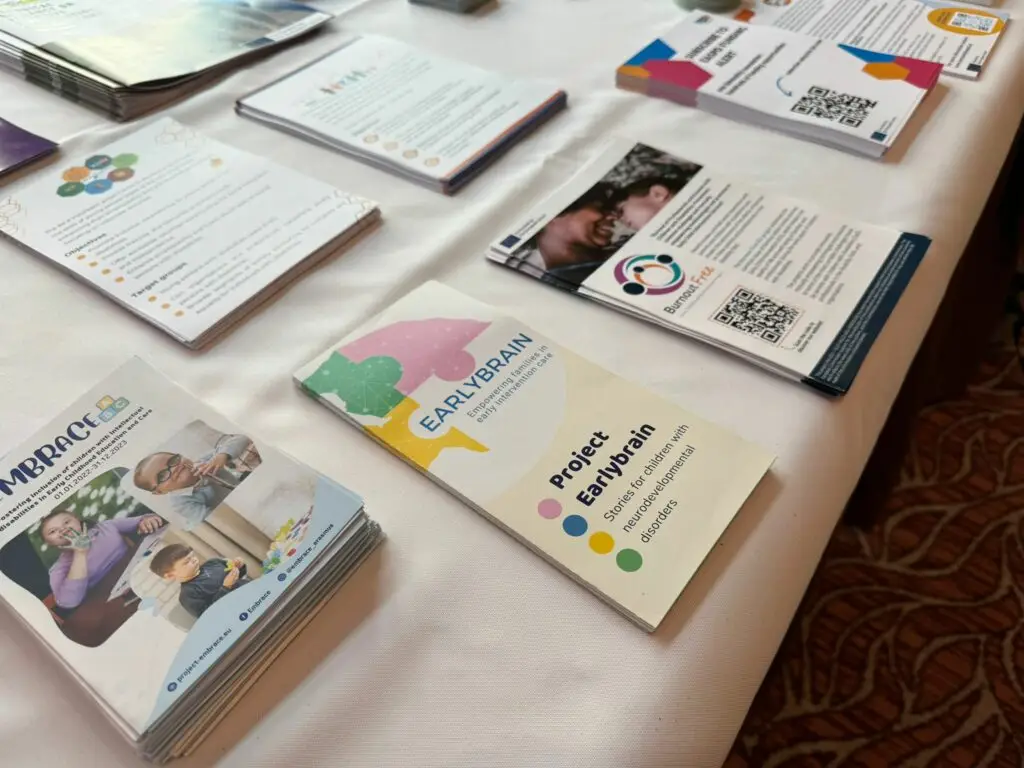EarlyBrain Presentation at EASPD Conference on Mental Health and Psychosocial Disability Support
On 20-21 May 2024, the EarlyBrain project participated in the European Association of Service providers for Persons with Disabilities’ (EASPD) international conference on transforming mental health and psychosocial disability support services.
Workshop Highlights
The workshop focused on fostering the wellbeing of children and their caregivers. It opened with a presentation on parental burnout symptoms and prevention, then it focused on storytelling as a tool for Early Childhood Intervention (ECI), and closed with a presentation about the ECI system in Ukraine and how professionals are dealing with the trauma of war and displacement
The Power of Storytelling:
Irene Bertana, EASPD Senior Policy Officer, presented the EarlyBrain project, emphasising the impact of storytelling on children’s development. Storytelling enhances language and social skills, emotional regulation, and cognitive abilities in young children. It also fosters cultural awareness and improves communication between caregivers and children.
During the presentation, Irene shared some of the stories developed by the project, such as “Lucas Doesn’t Want to Cut His Hair” and “Super Marta Against the Toilet.” These stories help children address fears related to some typical challenging situations for children with developmental conditions. One of the stories focus on leaving the home, interrupting routine and meeting strangers in a noisy environment to get a haircut. Another story focuses on learning how to transition from nappies to using the toilet by integrating concepts like cognitive inflexibility, sensory hypersensitivity, visual anticipators, and role-playing.
Parental Burnout:
Vicky Krokou from AMIMONI presented techniques for managing stress and maintaining parental wellbeing, developed in the framework of the BurnoutFree ECI Project. Recognising early signs of burnout, such as chronic fatigue and emotional distancing, is vital for timely support and intervention. Strategies discussed included mindfulness practices, physical wellness routines, and seeking professional help when needed.
Parental burnout, affecting at least 5% of parents globally and up to 8% in some countries, can be exacerbated by raising children with disabilities. Signs of burnout include exhaustion, emotional distancing, and feelings of being fed up with one’s parental role. Causes range from relentless caregiving demands and lack of support to financial strain and chronic stress.
The workshop highlighted the importance of recognising early signs, accessing support services, encouraging peer-to-peer support groups, and seeking professional help when necessary.
The workshop concluded with participants expressing appreciation for the relevance and practical value of the presentations. The collaborative efforts and shared experiences underscored the importance of supporting both children’s and caregivers’ wellbeing.

